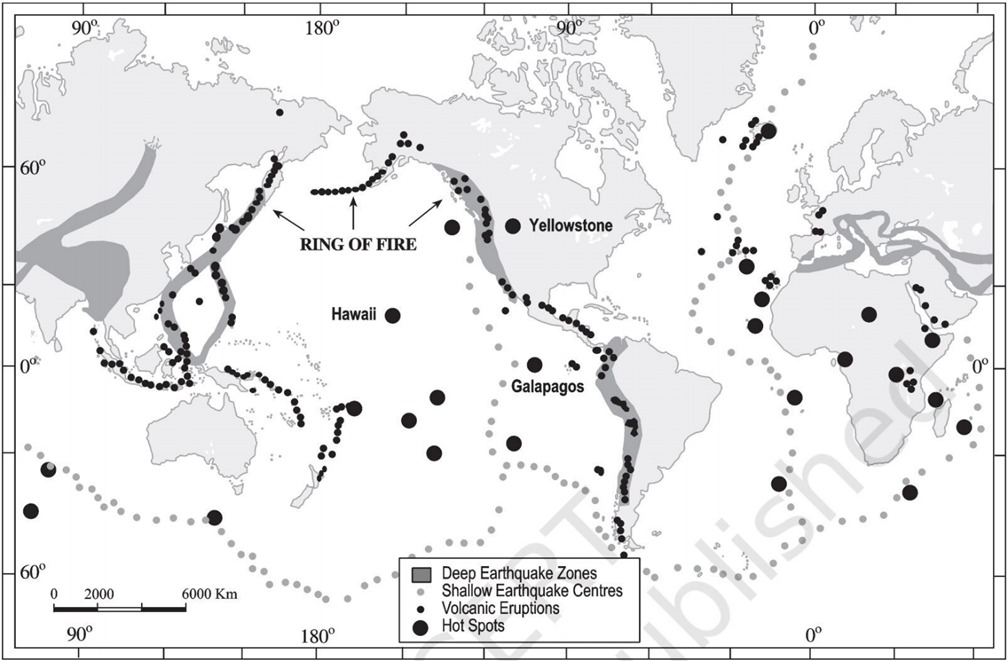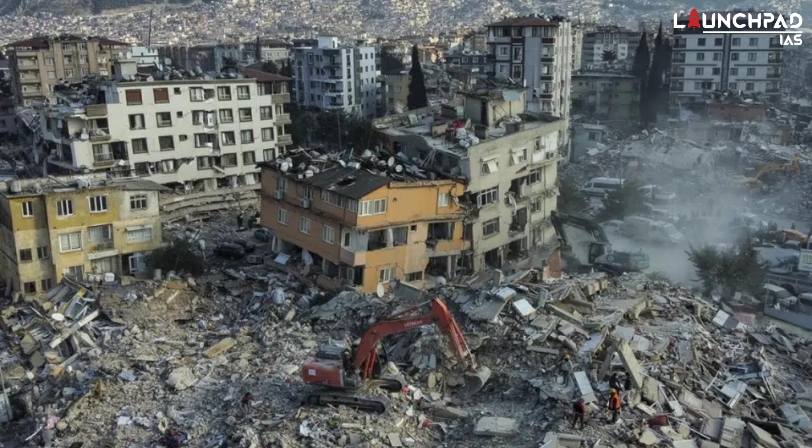- Earthquake is simply shaking off of the earth. It is a natural event. Earthquake is caused by to release of energy, from the interior of the earth and the release of this energy, creates seismic waves which travel in all directions.
- The location below the earth’s surface where the earthquake starts is called hypocentre and the location directly above it on the surface of earth is called epicentre.

- Earthquake epicentre could be either land or water (ocean). If the epicentre is land it can cause cracks, and damage to buildings and in case the epicentre is ocean then it may lead to a Tsunami.
Earthquake Waves
- There are two types of body waves. They are called P and S-waves.
- P-waves move faster and are the first to arrive at the surface. These are also called ‘primary waves’. The P waves are similar to sound waves. They travel through gaseous, liquid and solid materials.
- S-waves arrive at the surface with some time lag. These are called secondary waves. An important fact about S-waves is that they can travel only through solid materials. This characteristic of the S-waves is quite important. It has helped scientists to understand the structure of the interior of the earth.
- Reflection causes waves to rebound whereas refraction makes waves move in different directions. The variations in the direction of waves are inferred with the help of their record on seismographs.
- The surface waves are the last to report on seismographs. These waves are more destructive. They cause displacement of rocks, and hence, the collapse of structures occurs.

Types of Earthquakes
- The most common ones are the tectonic earthquakes. These are generated due to the sliding of rocks along a fault plane.
- A special class of tectonic earthquake is sometimes recognised as a volcanic earthquake. However, these are confined to areas of active volcanoes.
- In areas of intense mining activity, sometimes the roofs of underground mines collapse causing minor tremors. These are called collapse earthquakes.
- Ground shaking may also occur due to the explosion of chemical or nuclear devices. Such tremors are called explosion earthquakes.
- The earthquakes that occur in the areas of large reservoirs are referred to as reservoir-induced earthquakes.
Distribution of earthquakes across the globe:

Also, check out: CARBON CONCEPT OF CLIMATE CHANGE


